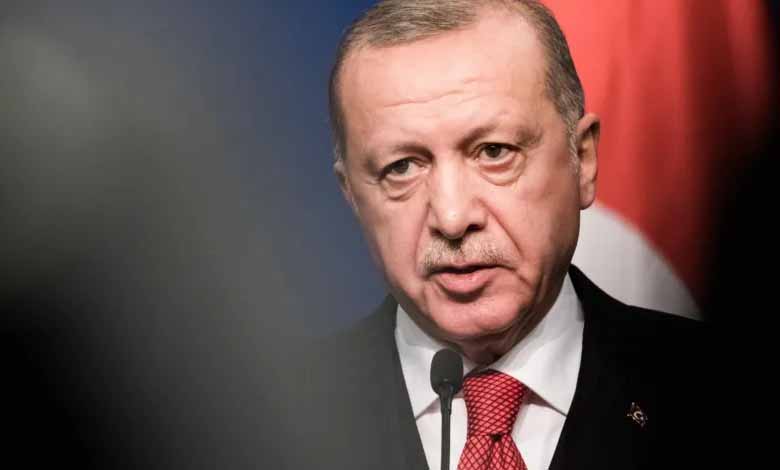The financial crisis leads Erdogan to temporarily abandon the battle to reduce interest rates

The economic crisis forced President Recep Tayyip Erdogan to seemingly rethink monetary policy driven by his own vision and which caused the consecutive collapse of the Turkish lira, a rise in inflation, and a collapse in Turks’ purchasing power.
For years, Erdogan has fought a battle to cut the interest rate, arguing that it is the cause of all economic ills, but each time he presses the central bank to cut the rate, the lira plummets to a crawl.
Less than a month after being re-elected to a new term, he hinted Wednesday that he would allow his new economic team to raise interest rates to fight inflation and stabilize the lira’s exchange rate, reversing a long-standing unconventional monetary policy.
Erdogan, who won a new term last month, appointed Mehmet Şimşek, a former economist at Merrill Lynch, as finance minister and former Wall Street financial officer, as Central Bank governor.
The move has been welcomed in markets, where Erdoğan’s policies – to cut interest rates at any cost – have been blamed for Turkey’s economic troubles.
Shortly after taking over the portfolio, Şimşek said that Turkey had “no choice but to return to rationality,” an indication of a move away from low-rate politics. Erdogan said he “approved” the amendments proposed by his new aides, but stressed that he disagreed with their views.
“We have accepted the implementation of steps to be taken by the treasury and finance minister (Mehmet Şimşek) in cooperation with the central bank,” Erdogan said in a statement carried by the official Anadolu news agency.
But Erdogan, who has previously called the rate hike “the source of all evil,” insisted that his move should not be seen as a “serious change” in his views.
Regarding the rate hike, he said that his opinion “is still the same.” The Central Bank of Turkey will hold its next meeting on interest rates on June 22nd.
Turkey’s annual inflation fell below 40 percent in May for the first time in 16 months, after touching 85 percent last year.
Erdoğan’s statements suggest that he has given his new collaborators time to prove that their more conventional economic policies are working – one that has spent the last two years promoting a “new economic model” that makes sharply lower interest rates a priority.
Erdogan argues that faster economic growth is usually accompanied by lower interest rates that reduce unemployment and naturally lower the cost of living. His approach forced Turkey to pump $25 billion into the lira this year.












